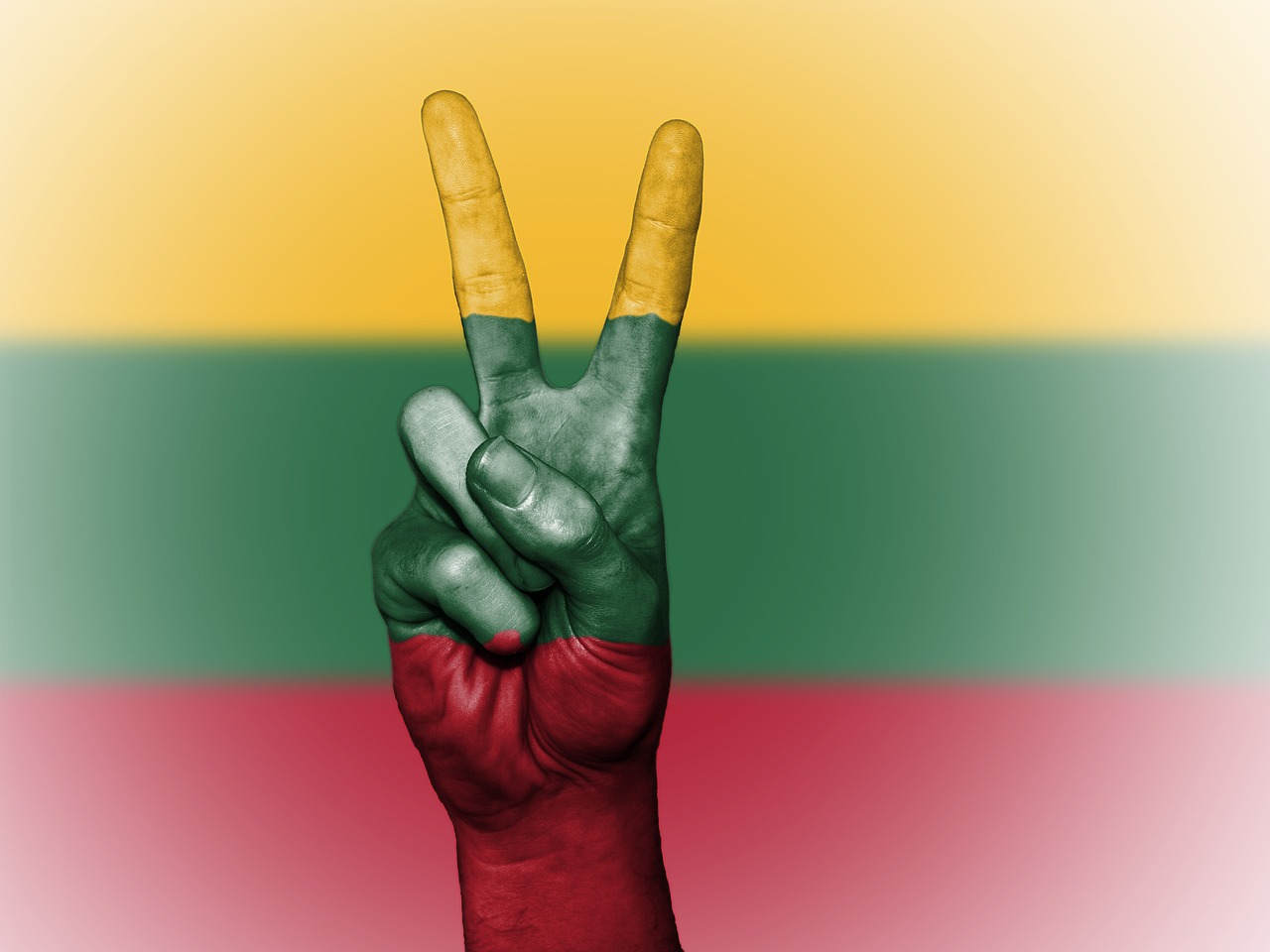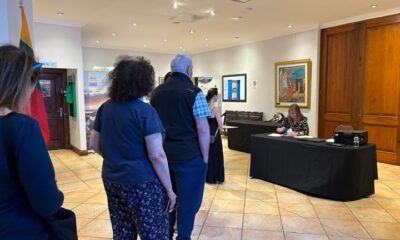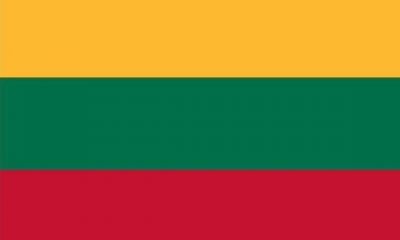
World

SA Litvaks urged to vote in poll for dual citizenship
Members of the Lithuanian government are calling on South Africans holding Lithuanian citizenship to vote in the upcoming election, saying its outcome could determine the future of dual passports.
Voting is essential, they say, because part of the election includes a referendum allowing Lithuanian citizens the right to hold dual passports. As it stands, Jews of Lithuanian origin are among the few who are entitled to this. So, should dual citizenship not be accepted across the board, it may have a negative impact on those who hold dual passports and those trying to attain them.
“It’s crucial for South Africans holding Lithuanian passports to participate in the elections as their votes can influence decisions related to citizenship laws, including the possibility of allowing dual citizenship,” said the Lithuanian ambassador in South Africa, Rasa Jankauskaitė. “By exercising their right to vote, they can advocate for policies that have a direct impact on their status and rights.”
Between 3 000 and 7 000 South Africans are believed to hold Lithuanian citizenship. Businessman Howard Sackstein, one of them, said, “If we fail to vote, we put our hard work and effort into making sure that we can regain our Lithuanian citizenship at risk.
“Therefore, it’s crucial that every South African who has regained their Lithuanian citizenship vote in the referendum for their interests. If this referendum fails, ultimately, it will open the door to a risk that Lithuania can say, ‘Choose’. That will force many people to either leave South Africa, and give up their South African citizenship, or give up their Lithuanian citizenship. That’s not in any of our interests.”
The Lithuanian election is on 12 May, just four weeks away. It entitles citizens to vote for the president of the country and to change the Lithuanian Constitution.
The referendum is specifically to amend the Constitution to allow all Lithuanian citizens to hold multiple citizenships. Those who hold Lithuanian citizenship can also vote for members of the European Parliament and Lithuanian Parliament in May and October respectively.
“Currently, the law on citizenship allows dual citizenship only in exceptional cases for those whose ancestors left Lithuania before the independence restoration in 1990, but still had Lithuanian citizenship in 1940,” said the ambassador.
Nida Degutienė, Lithuanian emigration consultant, said, “Citizenship is considered one of the most important pillars of Lithuania’s Constitution and statehood, therefore it can be changed only if the vast majority of all persons having a right to vote express their willingness to change it, in other words, if 75% say yes.
“This is why voting in the 2024 referendum is extremely important. Every vote counts, every person’s participation is crucial.”
Sackstein said a special amendment was created to give Jews of Lithuanian descent, commonly known as Litvaks, the unique opportunity to apply for Lithuanian citizenship. “But there’s no guarantee that the provision will last,” he said. “We need to secure the citizenship that we’ve received by ensuring that all Lithuanians are entitled to dual citizenship. That’s the only way we can guarantee that we can retain our Lithuanian and South African citizenship.”
Member of Parliament Dalia Asanavičiūtė of The Homeland Union, the Lithuanian Christian Democrats Party, spearheaded the recent changes to the Citizenship law of Lithuania, which got 100% support during its parliamentary vote. These changes made the process of applying for citizenship reinstatement for South African Jews whose ancestors once held Lithuanian citizenship easier and simpler, and it removed unnecessary legal obstacles which had created much frustration and anger for South African Litvaks.
According to the Lithuanian government, an average 1 000 people lose their Lithuanian citizenship annually because they acquire citizenship of another country.
Said Degutienė, “A high number of participants in the referendum for dual citizenship is crucial for the success of the referendum. Every vote is needed. Lithuania cannot afford to lose so many citizens annually because of the single citizenship rule, and changing the Constitution requires extremely active participation.”
Said the ambassador, “Elections are the cornerstone of democracy. This is particularly significant today as democratic values face threats in various parts of the world.
“This vote presents a critical opportunity for South Africans with Lithuanian passports to influence decisions that directly affect their citizenship status. By voting now, they can actively contribute to shaping laws and policies that have an impact on their rights and freedoms, including potential recognition of dual citizenship.”
Asanavičiūtė, who was behind the early change in Parliament, called on the South African Litvak community to do its bit. “I kindly invite all South African Litvaks to contribute to the cause by becoming global ambassadors for Lithuania, to spread the word about the referendum on the retention of citizenship, and encourage family members, friends, and acquaintances who are eligible to vote to come to the ballot box.”
Litvak, Bernard Seeff, said, “We must all vote on this issue to ensure that all Lithuanians can get dual citizenship. It’s important that we vote in these elections in the same way that it’s incumbent on everyone who is a South African citizen to vote in the South African elections.”
Another, David Saks, said, “Lithuania was the heartland of one of the greatest Jewish civilisations in the diaspora, and as a community largely of Litvak origin, South African Jewry have been able to build on that proud legacy. Since the downfall of communism, it has been possible, albeit to a modest extent, for people in our community to re-forge that connection. Allowing them to hold dual citizenship would obviously go a long way towards building on this in future.”
“Being a South African Jew of Lithuanian descent, I know that our roots are important,” said Reeva Forman, another Lithuanian citizen. “To have dual citizenship for whatever reason reminds me personally of my roots and being able to have a say in an election that’s not in the country I live in but one that I consider to be my own is extremely important.”
Litvaks who intend to vote need to register by 20 April on the website of The Central Electoral Commission of the Republic of Lithuania, and may vote in person at the Embassy of the Republic of Lithuania in Pretoria or by post.
Additionally, polling stations might be set up in Johannesburg. The addresses of polling stations and their working hours will be announced on the website and Facebook page of the Lithuanian Embassy.










